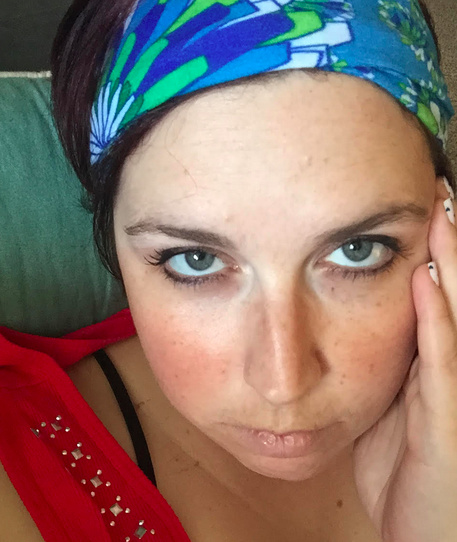When Medical Professionals Say 'You Look Too Healthy to Be This Sick'
It’s something chronically ill people likely hear all the time from medical professionals. I truly believe it’s meant to be a well-meaning gesture, but unfortunately it often falls short of that. They have our charts in hand. They see the long list of diagnoses, medications, allergies, hospitalizations, surgeries, etc. Then they look at us and mutter the words we know are coming, the words we wish we could prevent: “You look too healthy to be this sick.” It’s a gut-punch, and this is why:
Chances are it has taken us an immense amount of energy and struggle to get to that medical appointment. There are medications to be taken, tube feeds to be prepared, wheelchairs to lift and load, emergency medication bags to pack. There is energy spent waiting in the waiting room, which is often uncomfortable for someone who is chronically ill. When those words are muttered, in just a split second it discredits all of the time and energy a person with chronic disease has put into just getting there. By the time we get through all we did to get there, our symptoms are probably aggravated. We certainly aren’t feeling healthy, even if we so happen to be looking it!
It downplays what those of us with chronic illness experience on a daily basis. For most, it takes energy just to get out of bed in the morning. It takes willpower to get into the shower and get dressed. All those things on our medical charts have severely affected us at one point or still do today.
It discredits the physical and emotional pain that those of us with chronic illness experience. A medical chart is just filled with words, but those words amount to some of the worst memories of our lives. Those hospital stays listed are more than just a grouping of days marked on sheet of paper paired with an admitting diagnosis. They are days spent away from loved ones. They are the days spent in pain, lying in a bed alone wondering when we’ll get to go home, if we will get to go home and just how long we’ll get to stay there.
It makes us think you aren’t truly seeing us or taking us seriously. That is quite frightening for a patient with multiple health needs. It’s especially anxiety-provoking when you’re in the ER. If the medical professionals caring for you think you simply look too well to be as sick as you are, we know that could change the way you’re treated. It could mean pertinent labs are not drawn, necessary imaging is not performed, fluids and medications are withdrawn — all because they think you look too well to be carrying the primary and secondary diagnosis you have, and that you don’t have a high need for being seen. Being told you look healthy is no compliment in the ER; it’s an instant dose of anxiety. Especially when you’re feeling terrible and have been waiting five hours to be seen.
It minimizes what our loved ones deal with on a daily basis. By saying we look too healthy to be sick, you’re taking away from our loved ones who care for us on a daily basis. I’m sure our husbands, mothers, friends, children, nurses and other caregivers don’t agree — as they adjust their lives, alter their work schedules and carry the weight of our worlds on their shoulders — that we look super healthy. In fact, I can’t think of a single person in my life in the past six months who said to me, “You look healthy” other than some slightly condescending medical professionals. There’s probably a reason for that.
It probably is truly meant to compliment you, but the fact of the matter is there’s no reason for a medical professional to comment on your appearance period, unless it is actually an effect of a diagnosis (such as a rash, jaundice, tumorous growth, etc.). Such a comment isn’t helpful at all to a patient’s care plan, and it really can cause anxiety and despair.
If I had a solution I would offer one, but in all honesty, I think it would be best if those in charge of caring for individuals with chronic illness spent less time commenting on their looks, and more time coming up with a patient-centered treatment plan to help them succeed in staying comforted and stable.
Follow this journey on Learning to Let Go; A Different Dream for Us.

